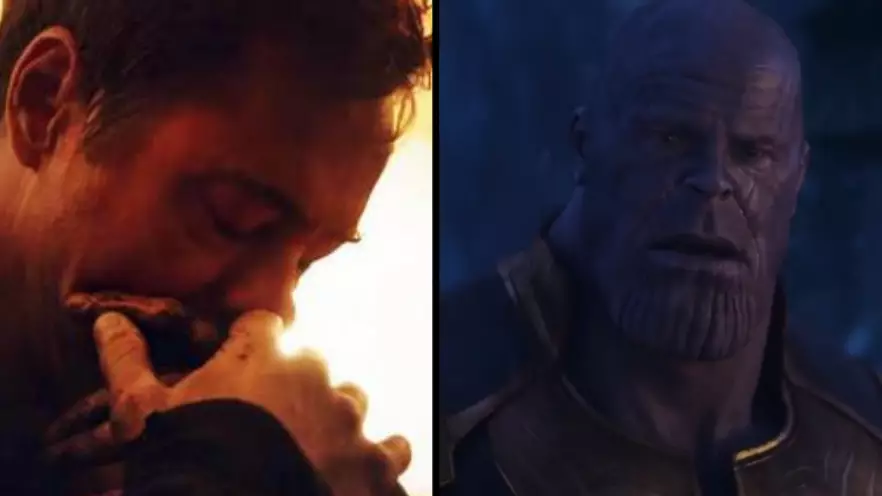
When was the last time you cried?
It's World Mental Health Day, and while awareness of male mental health is better than it has ever been, men still have difficulty opening up their emotions at times.
We still don't cry enough.
In a 2015 YouGov survey, more than a third of men said they hadn't cried at all in the previous year, compared to just seven per cent of women - and a 2017 survey revealed the average woman will cry twice as many times in their lifetime as the average man.
The constant, looming spectre of the "man up" mentality in some masculine corners of society can often convince blokes to bury their feelings, afraid to show their emotions publicly for fear of being seen as weak, or less of a man because of it.
But some recent cinema releases are tackling the issue head on - with male characters bravely opening up and confronting their emotions.
Often, the tears are recognition of their own failings as men. A sign of vulnerability rarely seen on the big screen.
One of 2018's biggest blockbusters actually ended up standing out for a moment of incredible tenderness between two of its male leads rather than the big budget special effects and action set pieces.
Step forward Avengers: Infinity War and the relationship between Tony Stark and Peter Parker - or Iron Man and Spider-Man as they're otherwise known.
Stark is a contradiction of a man in the first place. He holds himself responsible for the rise of increasingly villainy since he revealed himself publicly as Iron Man and so it's fitting that the events of the latest movie leave him almost entirely alone, with tears in his eyes.
As Spider-Man slips away as part of The Snap, both break down as they try to physically cling to each other. 'Please, I don't want to go," says Parker, visibly frightened. Stark is powerless to stop him slipping away.
The Marvel films have actually told the gradual story of Robert Downey Jr's swaggering playboy being made to confront his own inadequacy as a man - despite being considered a hero by many.
Reducing him to tears at the end of the most recent installment was a bold move by the Russo Brothers, but one that was welcomed by fans and critics alike.
Advert
Even Thanos - the uber-villain and most powerful being in the universe - sheds a tear during the film. He has just thrown his adopted daughter off a cliff, but even so...
Other notable 2018 releases are tackling male emotions too.
LGBT romcom Love, Simon focuses on the title character, played by Nick Robinson, as he deals with the fallout from his school gossip blog outing him as gay. He also makes the decision to come out to his family and, during a subsequent interaction with his father, his parent breaks down in front of his son.
Simon's dad isn't upset that he has raised a gay son. He's embarrassed he didn't realise sooner and concerned that his constant crass jokes may have offended his son. It's a touching scene, and one that gives audiences the rare spectacle of a parent crying in front of their child.

Health journalist Jim Pollard, editor of the Men's Health Forum, says: "We don't very often see men crying in front of other men. It's something that's done with women. The whole thing is part of this general movement that men are much more encouraged to be upfront and honest about our emotions these days. Men should be encouraged to be emotionally honest. Men crying in public is fantastic, but they need to be honest tears."
In British boxing drama Journeyman, writer-director Paddy Considine also stars as the titular fighter - Matty Burton - who finds himself having to readjust to life after suffering a debilitating brain injury. One of the key themes of the movie is the reaction of Matty's friends, played by Paul Popplewell and Tony Pitts. Both men were part of his team when he was a boxing champion, but abandoned him when his personality changed as a result of his illness. Matty attempts suicide - a move that brings his friends back, wracked with guilt and upset that they let their best mate down in his hour of need.
Journeyman is set within the hyper-masculine world of boxing and, at times, feels like a direct criticism of macho posturing and constructed masculinity. This is a world in which men are forced to challenge the deeply entrenched restrictions placed upon their emotions. In one evocative scene, Popplewell's character, Jackie, is seen with his eyes full of tears at his buddy's bedside. Popplewell says that, in his eyes, Matty's friends never reached out before because "they're blokes, they're macho and they don't know what to say or do".
"As an actor, it's just about being truthful and not forcing anything," he adds. "If it's there and it's warranted, then certainly don't shy away from crying. Don't let the macho bullshit ego get in the way.
"I grew up in an environment feeling that you couldn't show your emotions - you had to bury your emotions and get on with it. Suicide is massive in young to middle-aged adults because we have to 'man up' and its bullshit.
"I think it's important that men show emotion. I try to raise my son in a way that it's okay to be who you are. It's alright to be sad, it's alright to be happy, it's alright to cry and whatever you feel is valid. You don't have to hide that from anybody."
Journeyman and Love, Simon both feature scenes in which men in their forties, who grew up before the current era of emotional expression and acceptance, let their feelings show by crying.
It's crucial for pop culture to lead the way in helping men realise that the era of manning up and moving on is gone. It's okay to need help, and it's okay to cry.
The Time to Change campaign exists to challenge the stigma around mental health issues. Jo Loughran, director of the campaign, says media portrayals of male anxiety and emotion do have an effect in framing the way these issues are perceived in society and by the men who watch them.
"Mental health problems are common, with one in four of us experiencing them in any given year," she says.
"Yet our research shows that, compared to women, men are still far less likely to talk about their own experiences of mental health problems, partly due to fear of judgement.
"It's important that a true reflection of the range of male experiences and emotions are shown in film and dramas. When done well, storylines that show male characters being open about mental health, and their emotions, can help viewers to do the same."
Advert
Words by Tom Beasley
Featured Image Credit: